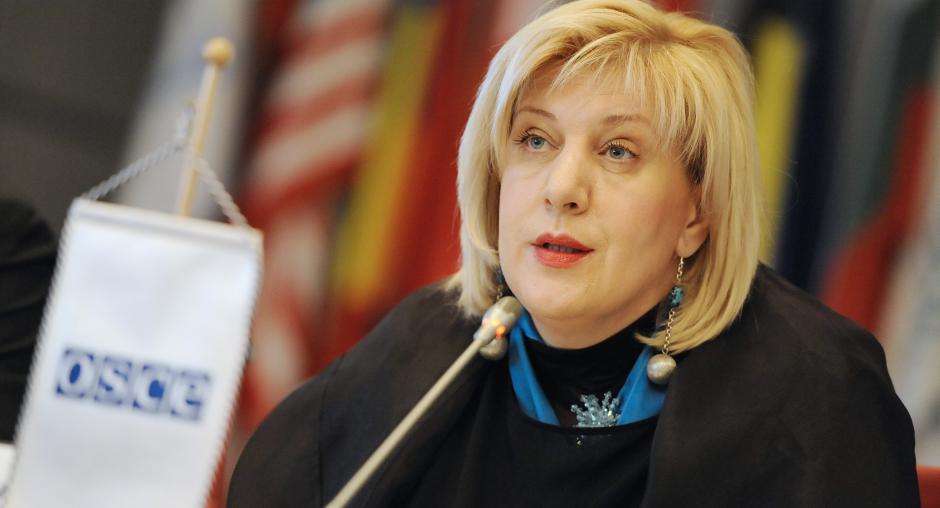OSCE Representative welcomes transparent process to create policy document for information security in Ukraine, presents legal analysis

VIENNA, 22 July 2015 – OSCE Representative on Freedom of the Media Dunja Mijatović today welcomed the transparency and openness of the process to create the draft Information Security Concept of Ukraine. She also presented a legal analysis of the document commissioned by her Office.
“I was pleased to note the great efforts taken by the authorities to ensure a high level of transparency in the drafting process of this important document,” Mijatović said.
The Representative, however, pointed to some issues regarding the content in the draft Concept.
“Despite the authorities’ legitimate concerns regarding information security, certain provisions of the draft Concept could have a chilling effect on media and hinder its important watchdog role,” Mijatović said.
“Freedom of expression is a prerequisite for exercising other human rights and fundamental freedoms, and proportionality and necessity of any restrictions in the legislation are essential at all times.”
In a letter to Yuriy Stets, Minister of Information Policy of Ukraine, on 10 July the Representative presented a legal analysis of the draft Concept, commissioned by her Office upon an official request. On 20 July, the Representative also joined Minister Stets for a press conference about the legal analysis.
The analysis, carried out by Dr. Katrin Nyman Metcalf, indicates the following main recommendations based on international standards and OSCE commitments:
- The existing rules on freedom of expression and their lawful limitations should be effectively applied, instead of introducing new binding rules and interpretative comments;
- The authorities should not be given broad powers which might limit freedom of expression and freedom of the media;
- The Concept shall not indicate that the State will be involved in creating media content or through regulation excessively influencing it;
- The Concept shall not indicate that, in balancing freedom of expression against possible reasons for restricting this freedom, there should be a presumption of allowing restrictions;
- Prohibitions on compromising authorities should be deleted from the document;
- The Concept cannot be interpreted as depriving foreign media of any rights;
- The mandate and tasks of the National Security and Defence Council appear to be too broad, which could interfere with the tasks of other public institutions in the media sphere such as the independent broadcasting regulator.
“I trust that the proposed analysis and recommendations will be carefully considered by the Ministry,” Mijatović said.
The full text of legal analysis is available at www.osce.org/fom/173776.
The OSCE Representative on Freedom of the Media observes media developments in all 57 OSCE participating States. She provides early warning on violations of freedom of expression and media freedom and promotes full compliance with OSCE media freedom commitments. Learn more at www.osce.org/fom, Twitter: @OSCE_RFoM and on www.facebook.com/osce.rfom.
